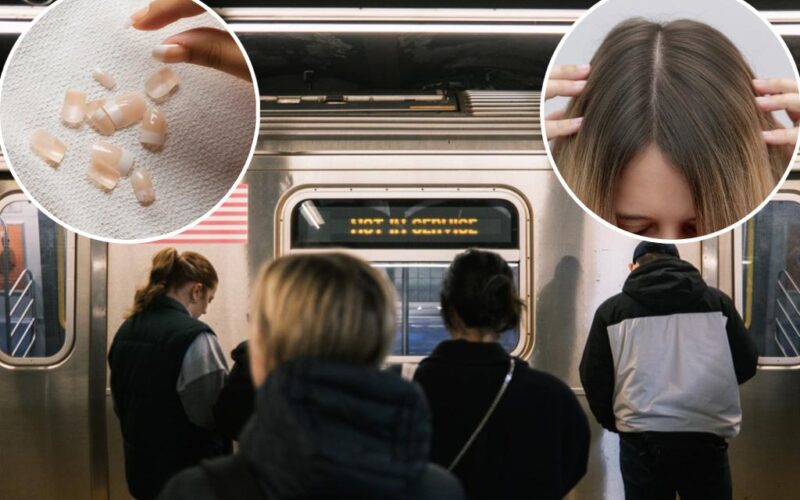Anything to save a dollar these days.
These days women are torn between wanting to prioritize self-care and figuring out where they can cut back on self-indulgent spending to save money in today’s fickle economy — especially with President Trump’s tariffs causing financial panic across the country.
Nowadays it’s easier than ever to buy things just for the sake of it, thanks to online shopping and speedy deliveries.
However, more recently women in particular are figuring out ways to cut back on their spending habits to ease their nerves about a possible recession.
Point blank, this year “recession hair” — which is when people ditch their expensive high-maintenance hair salon visits and let their roots grow out — has become a popular trend.
And there’s no shame in the game. Many content creators have taken to TikTok to openly admit that they can’t afford their regular beauty appointments anymore.
This woman posted an honest video writing, “When someone says they like my natural hair color better and I agree when in reality I can no longer afford to upkeep the blonde and this is my brunette recession era.”
And it’s not just hair that women are trying to recession-proof.
The Wall Street Journal reported that Google searches for “press on nails ” — a DIY cheaper alternative to getting expensive salon manicures — are up 10% since February.
Avoiding expensive price tags on clothes by thrifting at stores like Goodwill and Salvation Army has also been on the rise. 88% of thrifters are motivated by saving money when clothes shopping, according to USA Today.
Aside from beauty routines and clothes, females are also sacrificing their mental health to save a buck.
According to the Wall Street Journal, a 25-year-old woman named Aeyrn Briscoe stopped her weekly therapy sessions and instead turned to ChatGPT for mini-therapy sessions.
“Therapy is expensive,” she told the outlet. “No one has an extra $200 to spend to talk to someone.”
For women who live in big cities like Manhattan where Uber, Lyfts or cab rides are a convenient way to get around — it’s an expense many are trying to do away with.

According to the outlet, more women are resorting back to taking public transportation, unless it’s late or they feel unsafe.
“I just pray every day that things get better before they get worse,” a millennial named Stephanie Umeh told WSJ. “We’re all struggling—from the top to the bottom, it’s hard for everybody.”
Cutting back on personal spending is clearly the first step in calming worrying nerves about the economy for many.








